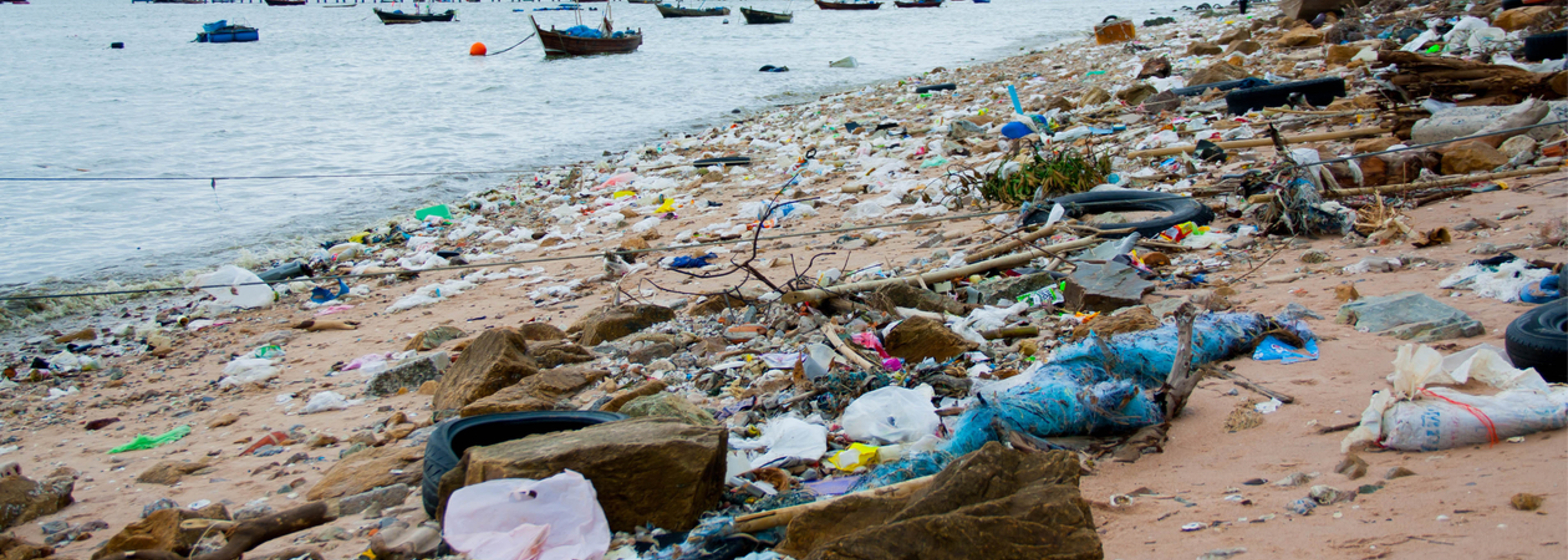Looking for a new role in environmental health?
Whether you're just starting out or ready for your next step, EHN Jobs connects you with the latest opportunities in environmental health across the UK.

‘For a long time, environmental protection has been inadequately enforced.’
Thursday, 7 January 2021, Anne Coulon, public international lawyer
Once a definition is crafted, the intention is to seek to amend the Rome Statute of the International Criminal Court (ICC) so that ecocide sits alongside genocide, war crimes, crimes against humanity and aggression in the list of international crimes that the ICC can prosecute. That would immediately create a new and powerful way to penalise the destruction of the global environment.
The road ahead is long and challenging. Beyond the obvious difficulties involved in crafting a legal definition of this new crime, a major obstacle remains: amendments to the Rome Statute (the treaty which established the ICC) must be proposed by a State Party to the Statute and adopted by a two-third majority vote at the Assembly of States Parties (the ICC’s management oversight and legislative body, made up of representatives of the States who are Parties to the ICC Statute).
Seeking consensus on an issue as potentially controversial as the introduction of a new international crime is unlikely to be straightforward. By way of example, although the crime of aggression was under consideration from at least 1998 when the Statute was drafted, the ICC’s jurisdiction over crimes of aggression was not activated until 2018 – 20 years later.
Supporters of the crime of ecocide have, however, grounds for hope: its criminalisation does have support from various states, including but not limited to the island nations likely to suffer most from climate change such as Vanuatu and the Maldives.
Other states such as France and Belgium are reported to have offered diplomatic support. The former is currently in the process of adopting legislation to criminalise conduct that causes serious damage to the environment at the national level, with stringent financial penalties as well as terms of imprisonment going up to ten years envisaged.
Nor is ecocide an entirely novel concept. It has been discussed since the use of chemical weapons during the Vietnam War. A draft Convention on the Crime of Ecocide was first published in 1973 and the 1991 Draft Code of Crimes against the Peace and Security of Mankind, which was at the heart of the drafting of the Rome Statute, included an offence of causing willful and severe damage to the environment.
The growing awareness of environmental issues and climate change could make the difference in persuading enough states to back the current initiative to recognise the crime of ecocide.
Once an amendment to the Rome Statute is adopted, that would allow allegations of ecocide to be investigated at the international level. However, States Parties to the Rome Statute would also have to introduce national legislation mirroring the Rome Statute provisions for prosecutions to also take place in the national courts.
The UK is a State Party to the Rome Statute and is a long standing supporter of the ICC. The Rome Statute is an international treaty adopted outside the EU framework and the UK’s status as State Party will not be affected by Brexit.
The ICC only has jurisdiction over ‘natural persons’. Corporate liability was considered during the negotiations leading to the adoption of the Rome Statute and rejected. Accordingly, as things stand corporations themselves could not be prosecuted before the ICC. Neither could public organisations, whether local, regional or national. Instead, the target of any prosecution would be individual corporate decision makers or public officials.
Given the fact that only the most serious crimes come under the ICC’s jurisdiction, only acts that cause the most significant harm to the environment are likely to trigger the court’s intervention. Moreover, in prosecuting such cases, the ICC would certainly focus on senior figures including CEOs.
In that respect, senior managers should pay particular attention to Article 28 of the Rome Statute – Responsibility of Commanders and other Superiors – which makes a ‘superior’ responsible for crimes committed by subordinates provided that he/she knew or disregarded information that crimes were being committed; the crimes were within his/her effective responsibility and control; and he/she failed to take reasonable and necessary measures to prevent the crime or to report it to the authorities for investigation and prosecution.
Although command responsibility originated in the military chain of command, there is no reason why this definition could not apply to a manager in any corporation so long as a hierarchical command structure is identifiable.
The full extent of international criminal liability for ecocide can only be assessed once a definition is agreed and approved. The trend, however, is clear. For a long time, environmental protection has been inadequately enforced. Existing human rights laws which guarantee a right to a healthy environment have had limited effect. Innovative attempts are now being made to fill that gap.
National courts are part of that process; for example, recent months have seen a coroner in England investigating whether air pollution was a cause of death and courts in France and the Netherlands holding those states accountable for respecting their commitment to reduce greenhouse gases. The move to criminalise ecocide is part of a trend which is likely to continue until effective environmental protection is in place nationally and internationally.
Anne Coulon is a public international lawyer trained in France, Germany and the US. She practices law from Temple Garden Chambers in London, but unusually she is also a member of the New York Bar.

Looking for a new role in environmental health?
Whether you're just starting out or ready for your next step, EHN Jobs connects you with the latest opportunities in environmental health across the UK.